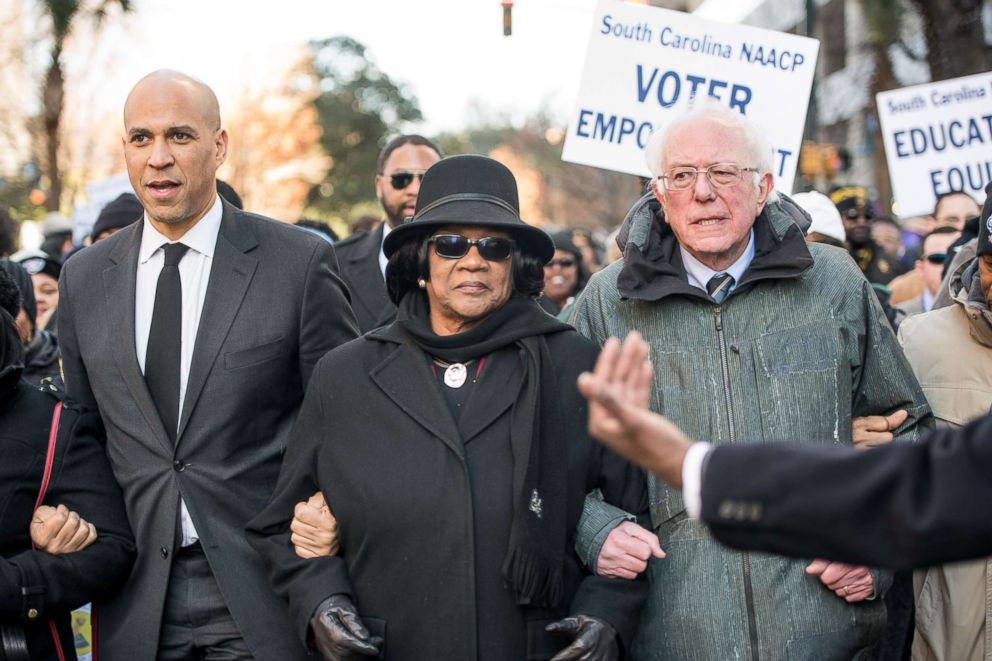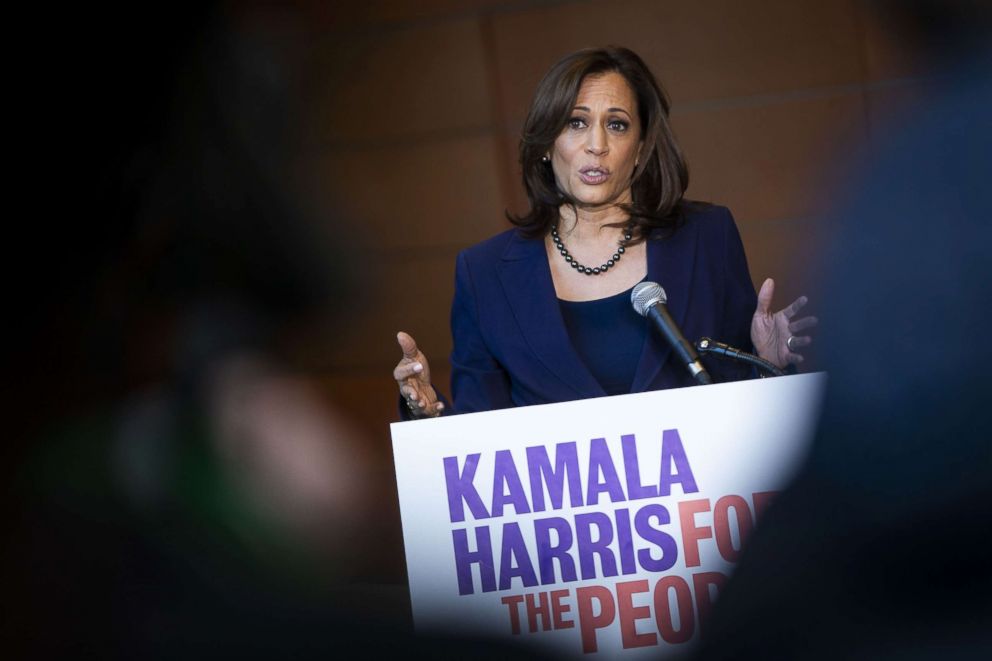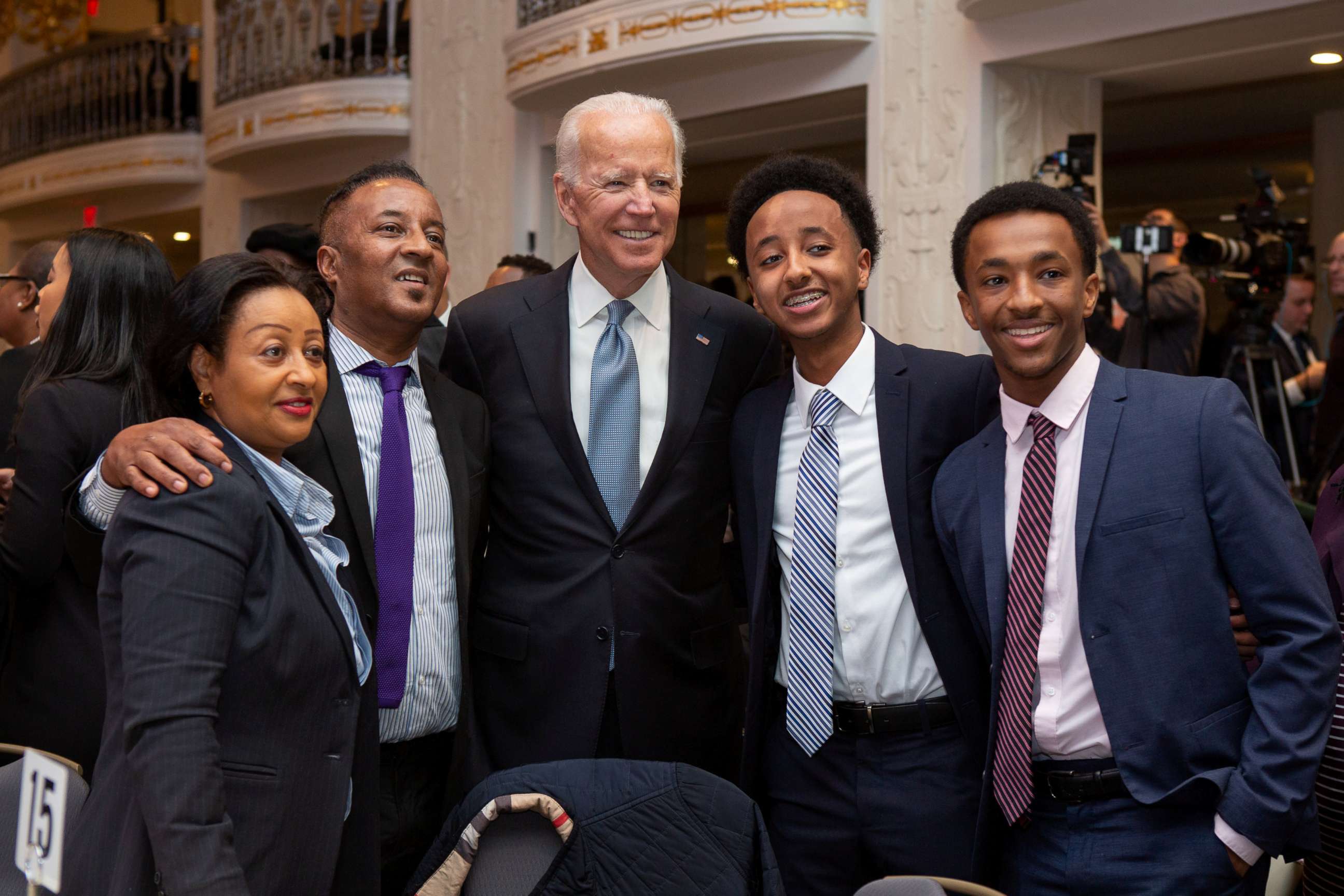ANALYSIS: Martin Luther King Jr. Day spotlights diversity in the 2020 Democratic field
Republicans might take advantage of a Democratic Party boxed in ideologically.
As several 2020 presidential hopefuls bounce around early voting states this holiday weekend, one can imagine that Martin Luther King Jr. himself would be proud about one simple fact. More then ever before, the slate of Democratic candidates is shaping up to be remarkably representative of the entire electorate, the most diverse the party has seen, in terms of race, ethnicity, gender, and religion.
In a historic way, Democratic primary voters this cycle will likely not only be able to chose someone who looks and sounds more like them, they will likely also have options.
Most likely the Democratic candidates will include several women, mothers, grandmothers and women and men of color. An LGBTQ candidate may announce his run as well soon.

The diversity in this Democratic primary class will likely dwarf the record-setting range of candidates that the Republicans had in 2016. Still it remains to be seen if there will be others types of diversity in the field, such as a range of experience and policy-prescriptions included in the mix.
A legion of U.S. senators have generated buzz at this early stage as they announce their intentions to run -- against each other -- though they continue to work side by side on Capitol Hill. Some of the other big names, like former Vice President Joe Biden and former U.S. Rep. Beto O’Rouke, have that Washington stamp too. In fact, all but three of the politicians who have announced presidential campaigns so far, currently serve in Congress; one of the others used to.
It is perhaps ironic, or even ominous, for Democrats then that Congress right now has an abysmal approval rating.
A political strategist once described Washington as a crime scene and, in the eyes of voters, everyone from there has blood on their hands. It’s a graphic, yet interesting theory that might support an argument for a not-so-quite-well-known governor, mayor or outsider to get in the race too.
Last cycle, many of the more progressive platforms championed by Sen. Bernie Sanders, for example, were viewed by moderate Democrats in Congress as too radical and impractical. This year, feeling the energy and enthusiasm among progressives in the party, moderate candidates are already shifting their answers and speeches to embrace and amplify a united call for ideas like Medicare-for-all, a $15 minimum wage, debt-free college and reforms to the tax code.

Take, for instance, what U.S. Rep. Alexandria Ocasio-Cortez, D-N.Y., recently said about how Congress should consider bumping the marginal tax rate for the super wealthy to 70 percent.
Republicans had a field day with that line from the new, young, self-described Democratic Socialist. It seemed radical and extreme.
And yet, one by one, Democrats eyeing the party nomination, have made a point of not dismissing her idea outright.
The more moderate and business-oriented John Delaney, for example, told ABC News' George Stephanopoulos when asked about it, “I think marginal tax rate should be higher,” before pivoting to talk about taking investment income differently too.

Sen. Kirsten Gillibrand, D-N.Y., spent a fair amount of time in the first week of her campaign apologizing for her past positions that were significantly more centrist and conservative than where the Democratic Party is today.
Earlier in her career, she opposed amnesty for undocumented immigrants and supported an increase in funding for the U.S. Immigration and Customs Enforcement. On ABC News' "This Week" Sunday, she repeatedly said many undocumented immigrants need a pathway to citizenship. During an interview with CNN, she said her previous stances on immigration “certainly weren't empathetic and they were not kind.”
Gillibrand also felt the need to answer questions about her quick pivot on the issue of gun control too. Her position and votes moved significantly when she left the House of Representatives and came to the U.S. Senate. Ten years ago, while representing upstate New York, she co-sponsored bills to ease restrictions on firearms and to limit the information law enforcement could obtain tracing guns. Now, she stands firmly with other liberals and gun safety advocates on the topic.
“I proudly have an ‘F’ rating with the NRA," she told voters in Iowa over the weekend.
Republicans and the president, in particular, might enjoy and take advantage of a Democratic Party boxed in ideologically.




